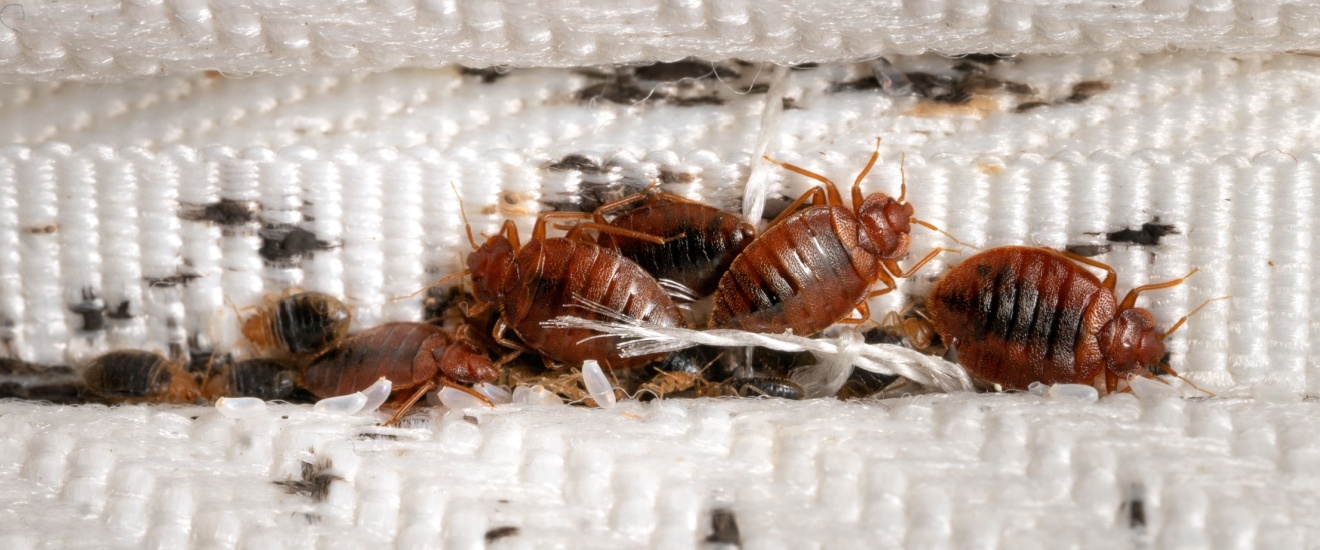In the heart of Los Angeles, where apartment living is the norm and turnover is high, bed bugs have become an increasingly common—and frustrating—problem. These tiny, blood-sucking pests don’t discriminate between luxury lofts or modest studios. But when they show up, the question becomes: who is responsible for bed bugs in California—the tenant or the landlord?
If you’re dealing with a bed bug infestation in your LA apartment, you’re not alone. And more importantly, you’re not without rights or responsibilities.
One of the most overlooked signs of a larger issue is persistent bites or rust-colored stains on bedding—often a red flag that calls for apartment pest control in Los Angeles.
What California Law Says About Bed Bugs
Under California bed bug law, landlords are legally required to provide a habitable living space. That includes keeping the unit free from vermin like bed bugs. According to California Civil Code Section 1941.1, landlords must act promptly when notified of an infestation. This means hiring a licensed pest control professional, covering the cost of treatment, and ensuring the problem is resolved in a timely manner.
But tenants aren’t off the hook entirely. If the infestation was caused by the tenant’s negligence—say, bringing in infested furniture or failing to report the issue promptly—they may be held partially or fully responsible for treatment costs.
Bed Bug Landlord vs Tenant Responsibilities in LA
In Los Angeles, the legal framework is clear: landlords are responsible for maintaining pest-free units, but tenants must cooperate with treatment and avoid contributing to the problem. Here’s how that typically breaks down:
Landlords must:
- Inspect units when notified of a problem
- Hire licensed pest control professionals
- Notify tenants before treatment
- Cover the cost of extermination (unless tenant negligence is proven)
Tenants must:
- Report suspected infestations immediately
- Avoid DIY treatments that could worsen the problem
- Follow all prep instructions for treatment
- Maintain cleanliness to prevent reinfestation
Failure on either side to uphold these duties can lead to legal consequences. Tenants may withhold rent or even terminate their lease if the landlord fails to act. Landlords, on the other hand, can pursue damages if a tenant’s actions caused the infestation.
Dealing with Bed Bugs in Multi-Unit Buildings: Why Timing and Communication Matter
When it comes to apartment living in Los Angeles, bed bugs don’t stop at the unit door. In multi-family buildings, these pests often spread through walls, hallways, and shared spaces. That’s why taking swift action isn’t just smart—it’s critical.
Landlords in California are obligated to inspect and treat not only the affected unit but also surrounding units if there’s a risk of spread. This is especially important in tightly packed complexes where one untreated infestation can easily trigger a building-wide issue. If left unaddressed, a small problem can spiral into major structural costs, legal liability, and tenant turnover.
Tenants can help break the cycle by reporting infestations immediately and sharing concerns about neighboring units if they notice signs of pests. Meanwhile, landlords who stay proactive—by conducting regular inspections and working with licensed exterminators—are more likely to maintain tenant satisfaction and prevent lawsuits.
In short, staying ahead of infestations in multi-unit buildings requires teamwork, transparency, and professional support. With the right response plan in place, everyone wins—and no one has to lose sleep over biting bugs.
Navigating Bed Bug Disclosure Laws in California Rentals
One critical but often overlooked part of bed bug legal responsibilities in California is the duty of disclosure. Under state law, landlords are required to provide written notice to prospective tenants if bed bugs are known to be present. This includes disclosure about any current infestations or past infestations that have not been professionally resolved. Failure to disclose can open landlords up to legal action—even if the bugs are later treated.
For tenants, understanding this right is key. If you moved into an apartment and later discover there was a history of unresolved bed bug issues that weren’t shared with you, you may have legal grounds to demand remediation or terminate your lease. Documentation of pest activity, dates, communication with property management, and inspection records all help strengthen your position if you need to take further action.
Ultimately, transparency before and after move-in protects everyone involved. And with bed bugs, a little honesty goes a long way in stopping a big problem before it starts.
What to Do If Your Rental Has Bed Bugs
If you suspect bed bugs in your apartment, don’t wait. The longer you delay, the harder—and more expensive—it becomes to eliminate them. Here’s what to do:
- Document the issue: Take photos of bites, bugs, or stains.
- Notify your landlord in writing: This creates a paper trail and triggers their legal obligation to act.
- Cooperate with treatment: Follow all instructions from pest control professionals.
- Avoid spreading the infestation: Don’t move furniture or bring infested items to common areas.
Remember, California renters and bed bugs are a legal combination that courts take seriously. Tenants have the right to a pest-free home—and landlords have the duty to provide it.
Protect What Matters—Call the Pest Experts
At Pest-R-Us Pest Services, we understand the unique challenges of bed bug infestation in apartment properties in Los Angeles. Our team of state-certified technicians uses eco-friendly, family-safe treatments to eliminate bed bugs at the source—and keep them from coming back. Whether you’re a landlord looking to protect your investment or a tenant seeking peace of mind, we’re here to help.
Don’t wait for a few bites to turn into a legal and financial nightmare. Contact Pest-R-Us Pest Services today to schedule an expert inspection, protect your property, and sleep soundly again.
